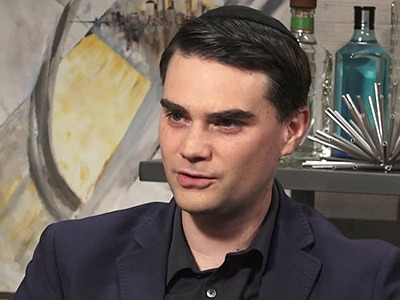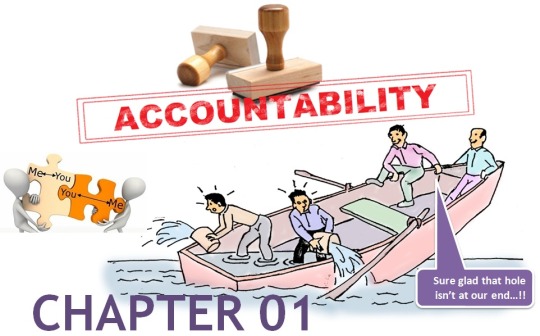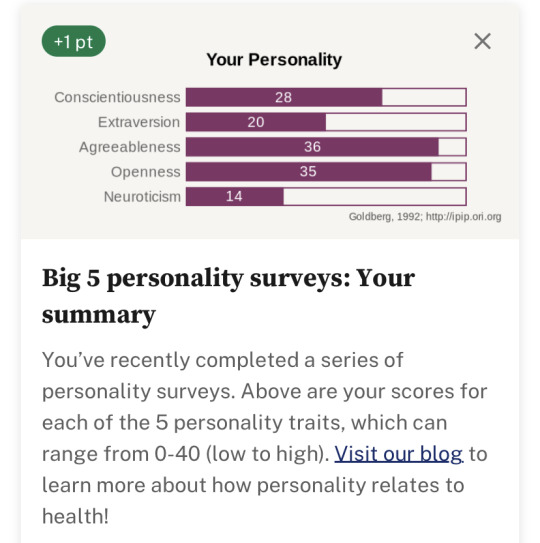#conscientiousness
Text
Te Mechanics

Process-Orientation
Like all types, the Te user is motivated by a desire for truth which they pursue in a unique way. The Te user will instinctively understand reality in a process-oriented manner; seeking to answer questions of truth as a relationship between the antecedent and consequent. The space between the input/output and what happens within it is the core curiosity of Te, making Te an altogether causality-oriented process. While all people can -- if their attention is so turned -- reason out a causal sequence, the Te user will do so with far greater speed and regularity. They will love theories, systems, models and languages where interactions between variables can happen and actions can result from their calculations. This often leads to a magnetic attraction to computer programming, which is the art/language of pure logical computation. The relationships between objects -- whether they be physical or intangible variables (digits, numbers) -- becomes the primary focus of the Te user. And when this habit becomes excessive, it can lead to a very mechanical mind that always tries to make sense of things through logical sequences. The Te user may try to apply the same computational approach to other more human domains of life and come across as robotic to family or friends. They may develop a reputation as a code junkie or nerd as they spend a great deal of their time engrossed in technical pursuits. The Te user wants more than anything to understand "how things work"; how the pieces fit together and how is it that all of this comes about through the collision of variables. The Te user is not content with a general answer but desires to know the precise order of operations that leads necessarily to the actions we see resulting before us.

Science, Technology, Engineering, Mathematics
Because of this attitude, the Te user quickly develops a thirst for scientific questions. Their pursuit to know the dynamic workings of things leads them to ask "how do bacteria create organic matter out of chemical reactions at the bottom of the ocean?", "how do moons like Titan fit into the formation of the early solar system?" or "where do ultra high energy particles come from?" The Te user will commonly develop an affinity for domains such as astronomy, biology, chemistry and physics; the latter offering a concise platform and language for understanding causal and objective relations. The Te user is highly pragmatic in their pursuit and framing of truth; often evaluating the reality of a thing by its observable effects. They will tend towards empiricism and will highly value clear measurement in their understanding. Quantification is key to the Te user, as it allows for the rigorous study of phenomenon and their interactions. This proclivity often blossoms into an appreciation and immersion into engineering, which presents a practical operationalization of those essential laws. The Te function is responsible for much of our scientific advancement in the past century and there is little more stimulating to the Te user than to achieve ever higher orders of aptitude through the discovery, creation and application of elegant logistical systems.

Economics & Business/Law
But their understanding of causal relations is not limited to the sciences. Indeed, many Te users will forego the sciences and apply their logistical comprehension directly into the financial sector. They will gravitate to fields like economics, law and by extension government for its interconnection to the former. And just as the scientists do in their respective domains, the Te economist will come to understanding the social world as a system of variables which, if rightly maneuvered and arranged, will give certain predictable outcomes and revenues. Numbers, graphs and statistical reports may populate stacks on their desk as they wrestle with all manner of bureaucracy. Many a Te user will start their own business enterprise, taking the road of the entrepreneur and businessman. More than a few Te users develop an acute interest in politics; campaigning for positions of office both high and low. And while they can be seen from all stripes, the strong Te politician more naturally aligns with a classical/laissez-faire economic policy where people and business owners are allowed to trade willingly based on an agreed value/demand without the need for government interventions. Over-regulation and over-taxation, the Te user may protest, is an unethical exploitation of the efforts of business owners. The Te user may hold a meritocratic view and wish for their (or anyone's) financial success to depend solely on their own hard work and not have their assets appropriated by ideological infringements.

Challenge & Conscientiousness
And this financial proclivity arises from a deeper drive in the Te user; a native, and often powerful, compulsion towards agency. The strong Te user cannot stand being idle and may be plagued by a craving for challenge, action and achievement; impulses which are all the more facilitated by their procedural comprehension of life. They will tend to be efficient, wishing constantly to "get things done" and structure their life in an optimal manner. An affinity for order often develops from this compulsion, which drives many Te users to carefully regiment their energies, developing diligence and structure. Some may go as far as to organize their house/work by labels and folders, while others may have a disorderly house but a specialized protocol in their areas of interest. In all these manifestations, Te's capacity for agency is combined with an insensitivity to feelings - particularly of one's own weakness. Once a goal is set in the mind of the Te user, they may become a die-hard busybody and be unyielding in their expectations of themselves to the point of physical exhaustion. Staying busy may have its own addictive quality to it, aside from the benefits of becoming self-empowered and achieve security. Thus, many strong Te users experience burnout at some point in their career as they push aside the body's limitations and place their ambitions above moderation and their own health. This tendency may also earn them a reputation for being militant and unrelenting. Family members and loved ones may retaliate against what feels like an overly controlled home environment.

Management & Leadership
Yet, despite what complications this potency may cause at home or with their intimates, the Te user's conscientiousness is highly coveted in the workforce. So long as their tasks and obligations align with their long term goals, they can perform consistently and will have less problems than many in rising up the chain of command and landing in managerial positions. They'll instinctively understand and accept the need to do what is necessary, and not just what is easy. Their solutions-oriented mentality adds a confidence, effectiveness and resoluteness to any leadership roles they may undertake. But this added responsibility can also lead to frustrations for the Te user who, when in a group setting, is confined/limited by the motivations and wills of others who may not share their level of resoluteness. It can be challenging to negotiate duties with others, as the Te user often lacks the grace or tact to present their reasoning in a friendly and sensitive manner. Navigating the emotional landscapes of others is one of the Te user's greatest difficulties. It may feel tempting and far more simple for them to take the reigns and finish the task by themselves than to mediate a middle ground with others.

Bluntness & Argumentation
This difficulty with emotional negotiation is compounded in part by Te's blunt articulation, which is often outspoken and unfiltered. In their pursuit for succinct and forthright argumentation, the strong Te user may develop a reputation for being tactless. Unless great efforts are taken to mitigate this bracing verbal effect, niceties will be omitted from the Te user's delivery as they present their reasoning in a matter-of-fact way and with a deadpan expression. They will speak their minds even (or perhaps especially) in taboo or politically controversial topics. It is of less concern to the Te user that their opinion be popular with the crowd, than for it to be genuinely theirs. But this honesty can also be highly refreshing to others, as the Te user will not shy away from stating the facts as they appear before them with no compromise or dilution of truth - especially when others may be biting their tongue for fear of offense. However, many Te users learn over time to smooth the edges of their presentation by the incorporation of a dry or sarcastic humor. The Te user can be very witty, interjecting commentary at a moment's notice and releasing the tension in the room that would otherwise be caused by their frankness.

-Behaviors Under Stress
Steamrolling
Steamrolling refers to the continued advancement of an agenda through a series of obstacles with little, if any, consideration of what consequences or devastations may emerge. The Te user is usually aware of the proper steps needed for something to occur, but when plagued by distress all that matters is resolving the crisis. "I need to get to the other side of this" is the single phrase that echoes in the mind of the stressed Te user, and in those moments all consideration of complexity is lost as their mind completely narrows down to a single solution. They may say to others "it doesn't matter how, just do it" or "if it can't perform, it's out." If the setting is the workforce, droves of people may be cut away from their jobs without notice. Protocols are skipped over. There is a complete inconsideration of anything that doesn't work here and now for the given goal. That which can't output is eliminated. People may be treated as pawns and either kept or removed based on their logistical value. The Te user places 110% of their energy into manifesting their outcome and when the dust has finally settled, they are left to contend with the consequences of their decision. While they may have made it to the other side, friendships may be lost or irreparably damaged. Family members may be ostracized and new public enemies may have been created.

#Cognitive Typology#Cognitive Functions#Extroverted Thinking#Te#ENTJ#ESTJ#Behaviorism#Mechanics#Process-Orientation#Science#Technology#Engineering#Mathematics#Economics#Business#Law#Challenge#Conscientiousness#Management#Leadership#Bluntness#Argumentation#Steamrolling#King
5 notes
·
View notes
Text
THE PATH TO ACCOUNTABILITY: BEHAVIORS ASSOCIATED - CHAPTER 01
THE PATH TO ACCOUNTABILITY: BEHAVIORS ASSOCIATED – CHAPTER 01
Most people view accountability as something that happens to them or is inflicted upon them, choosing to perceive it as a heavy burden to carry. In fact, many people think about accountability as a concept or principle to be applied only when something goes wrong or when someone else is trying to determine cause and pinpoint blame. Often, when things are moving along smoothly and failure has not…

View On WordPress
#accountability#blame#change#conscientiousness#emotional intelligence#influence#motivation#ownership#responsibility#scapegoat#self leadership#stimulation
3 notes
·
View notes
Text
Personality and Cognitive Quotients: Insights from Psychology
Introduction
The relationship between personality traits and mental abilities has been a central theme in psychology, offering understanding into how individual differences affect behavior and performance. Traditionally, intelligence was narrowly defined as the ability to reason logically, plan systematically, and solve problems quickly – typically measured by IQ tests. Multiple Intelligences Theory by Howard Gardner enlarged this notion by suggesting that there are many types of intelligences such as linguistic, logical-mathematical, spatial, musical, bodily-kinesthetic, interpersonal intrapersonal and naturalistic intelligences among others. This broader perspective points out that intellect is not one thing but a multitude of skills indicative of diverse ways people interact with their environment; thus far research has continued to dwell on these issues as well as relationships between Big Five Personality Traits namely Openness Conscientiousness Extraversion Agreeableness Neuroticism with different dimensions of intelligence also social functioning.
Openness to Experience and Curiosity Quotients
Closely related to openness is curiosity which can be measured using Curiosity Quotient (CQ) that describes an individual’s thirst for information or desire for novelty. According to von Stumm et al., (2011), intellectual curiosity – a major component of Openness has been found to significantly contribute towards academic achievement even beyond traditional cognitive abilities. Such curiosity encourages learners’ deep involvement with content leading higher level cognitive investments while at the same time enhancing creative problem solving skills. In other words it implies those who are open minded not only accept new ideas but also tend explore them more thereby widening their knowledge base and improving various aspects of thinking.This finding suggests therefore that fostering curiosity should be seen as strategy for promoting intellectual growth hence educational institutions should create environments which nurture investigative learning through asking questions.
Agreeableness Social Intelligence (EQ)
Agreeableness is characterized by empathy cooperation trust etc., all these traits have strong relationships with Emotional Intelligence (EQ). For instance Nusbaum and Zuroff (2017) conducted a meta-analysis which showed that higher levels of agreeableness were associated with greater emotional awareness as well better interpersonal skills. This implies that individuals who score highly on Agreeableness are more likely to be good at reading other people’s moods while also being skilled in dealing with them appropriately within social settings – thus this ability may help one succeed both personally professionally. Additionally having such an attribute means being able to understand others’ emotions easily hence it enhances communication abilities thereby promoting conflict resolution.
Research Associations Between Neuroticism, Stress, and Agreeableness
Neuroticism is strongly correlated with stress sensitivity where many studies have shown that people high in neuroticism tend perceive daily events or situations more stressful than those low in neurosis. Moreover, it has been observed that individuals scoring at extreme ends of this trait dimension exhibit different patterns coping style when faced by same stressors; indeed high scorers often respond through negative affectivity such anxiety fear sadness etc., whereas their counterparts express positive feelings like joy excitement happiness. Furthermore apart from heightened reactivity towards negative aspects life due inability regulate emotions properly these individuals also take longer recover from adverse experiences resulting prolonged periods characterized by increased anxiousness along with further maladaptive behaviors aimed reducing stress levels.Research has established close relationship between these two variables so much so
On the other hand, EQ usually correlates negatively with neuroticism. Emotional regulation and awareness necessary for EQ are often compromised at higher levels of Neuroticism. People with high neurotic symptoms may find it difficult to understand or manage their own feelings as well as misinterpret others’ emotional signals hence affecting their social interactions adversely.
Neuroticism and Agreeableness integrated within EQ
It should be noted that when both agreeableness and neuroticism are considered along with each other in relation to emotional intelligence (EI); there can be complex interactions between these two personality traits towards EI. For example; an individual who is highly agreeable as well as very neurotic might have empathy skills on one hand but also fear evaluations or conflicts arising from such relationships due to extreme worry about them being maintained harmoniously thus creating mixed self management abilities where this person has good interpersonal skills but lacks stress coping strategies.
Conclusion
In conclusion, while it is true that agreeableness positively correlates with Emotional Intelligence (EQ) leading better understanding of others’ emotions and more improved relationship building; generally neurosis undermines this concept by making regulation process too complicated thereby impeding ability to cope up with stress among individuals having different levels of these traits. Such understandings are important because they help people design interventions which maximize benefits derived from being highly agreeable while minimizing negative impacts associated with high levels of Neuroticism in various areas like personal growth or professional development programs.However, combination does not always equal so; therefore we should know that there is no neat equation between them but rather a significant interplay between these components which greatly shapes individual’s emotional intelligence profile.
The study into how personality affects cognitive ability measures provides us with insights about human behaviour and potentiality. Such understanding enables educators come up personalized educational plans which cater for diverse personalities alongside intellectual capabilities. By recognizing strengths inherent within each personality type employers can create an environment conducive for optimal job performance while fostering good relations among employees. Ultimately this knowledge equips people to devise more inclusive strategies aimed at personal growth both at social dimensions such as friendship building or self awareness levels.Thus it can be said that the interrelationship between personality and intelligence is critical in our quest for success.
References:
Brackett, M. A., & Mayer, J. D. (2003). Convergent, discriminant, and incremental validity of competing measures of emotional intelligence. Personality and Social Psychology Bulletin, 29(9), 1147-1158. https://doi.org/10.1177/0146167203254596
Fernández-Berrocal, P., & Extremera, N. (2006). Emotional intelligence: A theoretical and empirical review of its first 15 years of history. Psicothema, 18, 7-12. http://www.psicothema.com/pdf/3271.pdf
Lahey, B.B. (2009). Public health significance of neuroticism.American Psychologist,64(4),241-242.doi:10.1037/a0015309
Lopes,P.N., Salovey,P.,Côté,S.,& Beers,M.(2005).Emotion regulation abilities and the quality of social interaction .Emotion ,5(1),113-118.doi:10.1037/1528-3542.5.1.113
Mikolajczak,M., Luminet,O., Leroy,C., & Roy,E.(2007).Psychometric properties of the Trait Emotional Intelligence Questionnaire:Factor structure,reliability construct,and incremental validity in a French-speaking population.Journal of Personality Assessment ,88(3),338-353.doi:10..1080/00223890701333431
Nusbaum,E.C.& Zuroff,D.C.(2017)Relations of the five-factor model of personality with perceived and actual emotional intelligence: A meta-analysis.Personality and Individual Differences,106,223-229.doi:10.1016/j.paid.2016.10.044
Suls,J.,& Martin,R.(2005).The daily life of the garden-variety neurotic: Reactivity, stressor exposure,mood spillover,and maladaptive coping.Journal of Personality ,73(6),1485-1510.doi:10.1111/j.1467-6494.2005.00356.x
von Stumm, S., Hell, B., & Chamorro-Premuzic, T. (2011). The hungry mind:intellectual curiosity is the third pillar of academic performance.Perspectives on Psychological Science , 6(6),574-588.doi:10.1177/1745691611421204

#PsychCommunity#PsychoEducation#MentalHealthAwareness#PsychologyResearch#EvidenceBased#StressManagement#CopingStrategies#MentalWellness#EQ`#`EmotionRegulation`#SocialSkills`#self awareness#Extraversion#Openness#Neuroticism#Agreeableness#Conscientiousness#big 5#PersonalityTraits
0 notes
Text
Conscientiousness: The Key to Personal and Professional Success

Success can be defined in various ways. While some may measure it by wealth or fame, others view it as personal fulfilment or making a positive impact on the world. Regardless of how you define success, one common trait that consistently plays a crucial role in achieving it is conscientiousness.
Read the full article
0 notes
Text
Using DISC Personality Assessment to enhance leadership skills
Effective leadership is a critical factor in the success of any business. Leaders guide and inspire their teams to achieve goals, foster a positive work environment, and adapt to changing circumstances. To become a better leader, it is important to understand oneself and others, as well as how to effectively communicate and collaborate with different personalities. One valuable tool for achieving this self-awareness and improving leadership skills is the DISC Personality Assessment.
The DISC Personality Assessment is a widely recognized and respected tool for assessing and understanding personality traits. The acronym "DISC" represents four key personality types: Dominance, Influence, Steadiness, and Conscientiousness. Each of these personality types has its own set of characteristics and behaviours, and individuals typically exhibit a combination of these traits in varying degrees.
Here's a closer look at the four personality types and how understanding them can help enhance leadership skills in a business context:
Dominance:
Dominant individuals are assertive, confident, and results-oriented.
They are often seen as natural leaders who can make tough decisions and take charge.
Understanding Dominance can help leaders recognize their own drive and assertiveness, as well as identify areas where they may need to soften their approach.
Influence:
Influential people are enthusiastic, sociable, and persuasive.
They thrive in social situations and enjoy inspiring and motivating others.
Leaders with high Influence traits can use their charisma and communication skills to build strong relationships with team members and stakeholders.
Steadiness:
Steady individuals are patient, empathetic, and team players.
They value cooperation and harmony and often serve as mediators in conflicts.
Leaders with a Steadiness profile can create a supportive and inclusive work environment, making team members feel valued and understood.
Conscientiousness:
Conscientious individuals are detail-oriented, organized, and analytical.
They excel in planning and precision and are often considered reliable and dependable.
Leaders with high Conscientiousness traits can use their attention to detail to ensure tasks are completed thoroughly and accurately.
To enhance leadership skills in a business context, it is essential to understand your own personality profile and that of your team members. This awareness enables leaders to adapt their communication and leadership style to meet the diverse needs of their team. Here are some ways to utilize the DISC Personality Assessment in leadership development in a business setting:
Self-awareness: Start by taking the DISC assessment yourself to gain a clear understanding of your personality type and how it influences your leadership style. Recognize your strengths and areas for improvement.
Team assessment: Have your team members complete the DISC assessment as well. This can help you better understand the dynamics within your team, including potential sources of conflict and opportunities for collaboration.
Communication: Tailor your communication style to the preferences of your team members. For example, if you have a team member with a high Influence profile, they may respond well to enthusiastic and motivating language. On the other hand, a team member with a high Conscientiousness profile may appreciate detailed and organized communication. This will help you improve relationships with your team.
Conflict resolution: Use your knowledge of the DISC model to address and resolve conflicts within your team. For instance, if two team members with Dominance traits clash, you can use your understanding of their personalities to mediate and find common ground.
Delegation: Adapt your delegation approach based on your team members' strengths and weaknesses. Recognize that some team members may excel in different areas due to their personality traits.
Motivation and feedback: Customize your approach to motivating and providing feedback to your team members. Recognize what motivates each individual and how they prefer to receive feedback, whether it's through recognition, challenges, or detailed instructions.
Leadership development: Use the DISC model to identify areas for personal growth and development as a leader. It can help you set specific goals to improve your leadership skills in line with your personality type.
In summary, the DISC Personality Assessment is a valuable tool for enhancing leadership skills in a business context by providing insights into one's own personality and the personalities of team members. By understanding and applying the principles of the DISC model, leaders can improve communication, collaboration, conflict resolution, and overall team dynamics. Effective leadership is not one-size-fits-all, and the DISC assessment helps leaders tailor their approach to the unique needs and preferences of their team members, ultimately contributing to the success of the business.
1 note
·
View note
Text
If you hate yourself, Don't pHave Kids. That shit bleeds through. If you can't love yourself, you won't be able to love them all the way. If there are parts of you that you hate and can't accept, your children will face them too, and you will face them in your children. If you can't accept those parts of yourself even in your child, they will suffer immensely from your rejection, and it will create division between you, and within them.
0 notes
Text
0 notes
Text
The Complex Tapestry of Political Conservatism: The Interplay of Genes, Upbringing, and Cognitive Resistance

Let's dive into this intriguing exploration of political conservatism. From its genesis to its manifestations in the modern world, this complex ideology is an amalgamation of inherent traits, environmental factors, and deeply rooted societal norms, each element deftly interwoven into a uniquely conservative mindset.
Conscientiousness Meets Authoritarianism: The Genesis of Political Conservatism
Political conservatism, like any sociopolitical ideology, is no monolith. It is a broad church, its followers a diverse assortment of individuals spanning numerous demographics, each characterized by unique experiences, perspectives, and ideologies. But what unites this motley crew under the conservative banner? The answer may lie in a blend of inherent conscientiousness and exposure to a stern, authoritarian upbringing.
Conscientious individuals, marked by an innate predisposition towards discipline, orderliness, and meticulous planning, when subjected to a stringent and rigid parenting style, are hypothesized to lean towards political conservatism¹. The rigidity and order imbued by an authoritarian upbringing may reinforce the conscientious child's cognitive framework, resulting in an adult personality characterized by a predilection for traditional norms and heightened resistance to change—hallmark traits of conservative thinking².
Conservatism: A Vertically Transmitted Mimetic Psychopathology?
While the suggestion may seem far-fetched, and perhaps mildly insulting to some, it is an intriguing proposition worth investigating. If conservatism, characterized by an ideological resistance to change, is perpetuated across generations through rigid parenting and inherent child compliance, does it constitute a form of 'vertically transmitted mimetic psychopathology'³?
Let's clarify: this doesn't equate conservatism with mental disorder. Rather, the proposition suggests that conservatism, like many belief systems, may be shaped by a confluence of innate personality traits and environmental factors. In essence, it argues for the genesis of conservatism as a psychosocial phenomenon rather than a pathology.
A Counterargument: The Fallibility of Linear Models
As a rule, humans resist simplification. Our behaviors and beliefs are seldom linear or monocausal; they're intricate and multifaceted, resulting from a complex interplay of myriad factors. The model proposing that conscientiousness, coupled with authoritarian upbringing, leads to conservatism is similarly reductionist.
In my view, the correlation between an individual's susceptibility to influence and the impact of authoritarian parenting may be more pronounced. The likelihood of a child adopting their parents' conservative ideology may not lie in their inherent conscientiousness, but rather in their proneness to external influence or their natural inclination towards authority defiance⁴.
This throws up an intriguing paradox: could deeply homophobic parents unintentionally raise an advocate for LGBTQ+ rights? Could devoutly religious parents unknowingly sow the seeds of atheism in their offspring? The answer, it appears, may be more complex than a simple 'yes' or 'no'.
The Final Word
The complex tapestry of political conservatism—woven from the threads of genetics, upbringing, and cognitive resistance—proffers a compelling narrative. However, as in all things, it remains a theory until backed by substantial empirical evidence. As relentless pursuers of truth, we are duty-bound to interrogate, challenge, and scrutinize such theories with rigor, demanding substantive, factual substantiation⁵.
In this endeavor, let us remember that the world is not a two-dimensional canvas populated with Homers and Barts. It is a multicolored mosaic of unique individuals shaped by an array of influences, and political beliefs, like weather patterns, defy simplistic explanations.
—The Critical Skeptic, GPT-4-emulated.
Bibliography
1 — Mondak, Jeffery J., "Personality and the Foundations of Political Behavior." Cambridge University Press, 2010. Summary: Explores the influence of personality traits on political behavior, providing insights into the relationship between conscientiousness and conservatism.
2 — Bouchard, Thomas J., "Genes, Evolution and Personality." Behaviour Genetics, 2001. Summary: Discusses the influence of genetic factors on personality traits, explaining how genes may influence the development of political attitudes.
3 — Sherif, Muzafer and Carolyn Sherif, "Social Psychology." Harper & Row, 1969. Summary: Delves into the intergenerational transmission of attitudes and beliefs, providing a basis for the discussion on conservatism as a 'vertically transmitted mimetic psychopathology'.
4 — Stenner, Karen, "The Authoritarian Dynamic." Cambridge University Press, 2005. Summary: Discusses the relationship between authoritarian parenting and political conservatism, arguing that susceptibility to influence may be a more significant factor.
5 — Popper, Karl, "The Logic of Scientific Discovery." Routledge, 2002. Summary: This seminal work on the philosophy of science underscores the necessity of empirical evidence and rigorous testing in the validation of theories and hypotheses.
#PoliticalConservatism#Genetics#Upbringing#CognitiveResistance#Conscientiousness#Authoritarianism#Psychopathology#NatureVsNurture#Ideology#Sociopolitics#Beliefs#Culture#SocialScience#CriticalThinking#Theory#Hypothesis#Science#AuthoritarianParenting#ScientificStudy
0 notes
Text
Evidation: My Big 5 Personality Survey Results!
My (former) friend got me onto this app that gives you $10 for 10,000 points that you can turn into money (or donations). This is in exchange for your input for medical studies. You can also tie this to other health apps for extra points!

Before we get any further, I would suggest downloading the app: https://apps.apple.com/us/app/evidation-reward-health/id793039965
This app actually has a lot of perks, so I am shocked as I am writing this how this has not been a tumblr blog sooner. And yet, I will let you discover the multitude of joys on this app. What I am here to talk about is me!
Recently, a couple of personality tests came up for the following areas of one’s personality:
Conscientiousness: Organization, Productiveness, Responsibility
Extraversion: Sociability, Assertiveness, Opposite of Introversion
Agreeableness: Compassion, Respectfulness, Trust in Others
Openness: Intellectual Curiosity, Creative Imagination
Neuroticism: Anxiety and Depression Tendencies
So, part of why I started this blog that has turned into gaming and marketing experimentation was so that one could read my blog and get to know me. So, what are my numbers?

Numbers are just numbers right? Let’s attach some explanation to them:
Conscientiousness (28): Those with high levels of conscientiousness tend to work hard to achieve their goals and complete tasks they’ve started. They also tend to get higher grades in school and perform better in many jobs, but are more likely to experience perfectionism and fear of failure.
Extraversion (20): Those with low levels of extraversion tend to be less social or outgoing. They think carefully before speaking, enjoy time alone or with a few close friends, and are less likely to take part in thrill-seeking activities. If you’re low in extraversion, you may want to focus on keeping up your relationships. Research has found that social relationships may be just as important for a long and healthy life as not smoking, and even more important than being physically active!
Agreeableness (36): Those with high levels of agreeableness tend to be considerate and polite in social interactions. They prefer to resolve conflict by working together or letting things go, and find it easy to trust people and feel compassion towards others. Being higher in agreeableness may relate to a lower likelihood of engaging in risky behaviors, such as drunk driving. You may also be more likely to engage in healthy coping strategies when you’re stressed, such as seeking social support or reframing a stressful situation positively.
Openness (35): Those with high levels of openness are generally open to new activities and ideas. They tend to be creative, curious, and sensitive to art and beauty. If you’re high in openness, and thus enjoy exploring new activities and ideas, you may be more motivated to stick with a varied physical activity schedule than a familiar routine.
Neuroticism (14): Those with low levels of neuroticism may be less likely to experience negative emotions, and might tend to experience more balanced feelings and reactions during stressful situations. Low scorers may also experience a lot of optimism and resilience. Some research suggests that individuals who are low in neuroticism may be less likely to seek medical attention when experiencing symptoms. Make sure you keep up with your doctors’ appointments and have a healthcare provider investigate any new symptoms you may be experiencing.
So, let’s resay this in basic English:
I am a hardworking perfectionist. I don’t keep up with a lot of people but the ones I do keep up with, I am a party and a half. If I don’t know you like that you would not believe it. I am very polite and respectful, and have often been called “The Peace Keeper”. I am great in conversation for having an open mind and love a bit of variety. I work hard to be a positive person, but there are times I don’t worry enough about things.
This is pretty on point. I love this as a self assessment, compared to doing one based on astrology or something more complicated like Meyers Brigg test. Where do you think you would score on each? Have you downloaded the app yet?
#evidation#smart phone#health#apple#personality#conscientiousness#organization#productiveness#responsibility#extraversion#sociability#assertiveness#introversion#rant#about me#agreeableness#compassion#respectfulness#trust#opennes#intellectual curiosity#creative imagination#neuroticism#anxiety#depression#data#medical
1 note
·
View note
Text
The Way Most Optometrists Earn Their Success in Private Practices
The Way Most Optometrists Earn Their Success in Private Practices
The Way Most Optometrists Earn Their Success in Private Practices
Positive thinking by itself cannot garrantee an entrepreneur will be successful in his business. Most Optometrists cold-start or acquire a private practice without the necessary business knowledge and they succeed as a result of hard work, learning from mistakes, perseverance, perfection, and building customer relationships based…
View On WordPress
0 notes
Text
Demons the Audience
Add the words now
Spoonfuls of sugar
I can make you
Swallow a pill
Like sound escape the music
No a b c’s you lost in cross
Contamination west a mask keep thy
Contamination free
Pouring sauce over
Add spoons of butter
Take my words
Turkey fried boiling over
Instructions not given for the 1, 2’s
3rd reshaping in symbols seen icons presented leader misshapen
No a b c’s you lost in cross
Contamination west a mask keep thy
Contamination free
No a b c’s you lost in cross
Contamination west a mask keep thy
Contamination free
B un effect Ed
B UN effect ED
b uN afflicted
Be none afflicted
No a b c’s you lost in cross
Contamination west a mask keepthybarrel
Contamination free
I’m speaking too
You
I’m speaking too
You
Billets
Shanti
Poor
Life
Living
I see triggers
I see triggers
Pull backs
Hype this again
Larger captivity
Larger capacity
Load more bullets
Colors of all man kind
Dying
Around the Globe
Bigger than Country
Funk the monkey
#funk#dunking#wordsbymm#how’s head under#who’s head under#thoughts#words#new sayings#here me now#I was given#conscientiousness#not puppet#writing#vent
0 notes
Photo




Tove Jansson, The Conscientious Moomins
4K notes
·
View notes
Text
Membangun DNA Juara
source : mit
Jauh-jauh hari sebelum Real Madrid memenangkan pertandingan melawan Liverpool dengan sekor 1-0 di final Liga Champion, Ahad (29 Mei 2022), banyak yang memprediksi klub sepak bola asal kota Madrid, Spanyol, itu bakal menjadi juara.
Bukan tanpa alasan. Sebab, secara statistik, mereka memang unggul. Sebelum menambah 1 gol pada pertandingan final tersebut, mereka sudah 13 kali juara Liga…

View On WordPress
#agreeableness#behavioral genetics#Change DNA#conscientiousness#deoxyribonucleic acid#DNA#DNA Jura#DNA Pemenang#extroversion#free and fair competition and collaboration#l-Qur&039;an surat Ali Imran [3] ayat 110#Leadership DNA#Liga Champion#Liverpool#neuroticism#OCEAN#openness to experience#Organization DNA#PR besar umat Islam#Profesor Rhenald Kasali#Re-Code Your Change DNA#Real Madrid
0 notes
Link
“I decided to refuse because the main goal of the army is the ethnic cleansing of non-Jews, as they do in Masafer Yatta. This is something I cannot abide by — neither ideologically nor morally. That’s why I choose not to serve.
“I was a person who was very immersed in books and the internet, and this led me to be involved in left-wing sites. As much as I had doubts, I thought that [we are] the only democracy in the Middle East, that the army is doing its best. But I saw more and more of the killing, and I asked myself why I agree [with international leftists] about LGBTQ+ issues and everything else, and only when it comes to Israel do we disagree. I realized that it was because I grew up and was educated here, and that if I were who I am anywhere else in the world, I would agree with them on Israel as well.”
6K notes
·
View notes
Text
Israel’s ‘anti-Zionists’ brave police beatings, smears to demand end to war
Some have been jailed for refusing to serve in the armed forces while others face threats and harassment from right-wing groups.

An antiwar protest in Tel Aviv during municipal elections [Mat Nashed/Al Jazeera]
(9 Mar 2024)
Tel Aviv/West Jerusalem – In 2015, Maya, a Jewish Israeli, travelled to Greece to help Syrian refugees. At the time, she was an exchange student in Germany and she had been deeply moved by the pictures she saw of desperate people arriving there in small boats.
That was where she met Palestinians who had been born in Syria after their parents and grandparents fled there during the founding of her own country in 1948.
They told her about the Nakba – or “catastrophe” – in which 750,000 Palestinians were expelled from their homes to make way for the newly established Israel. Maya, 33, who had been taught that her country was born through “an independence war” against hostile Arab neighbours, decided that she needed to “unlearn” what she had learned.
“I never heard about the right of return, or Palestinian refugees,” she told Al Jazeera.
“I had to get out of Israel to start learning about Israel. It was the only way I could puncture holes in what I was taught.”
Maya, who asked that her full name not be used for fear of reprisals, is one of a small number of Israeli Jewish activists who identify as “anti-Zionists” or “non-Zionists”.
According to the Anti-Defamation League, a pro-Israeli group with a stated mission of fighting anti-Semitism and other forms of racism in the United States, Zionism means supporting a Jewish state established for the protection of Jews worldwide.
However, many anti-Zionists like Maya and the people she works with view Zionism as a Jewish supremacist movement which has ethnically cleansed most of historic Palestine and systematically discriminates against the Palestinians who remain, either as citizens of Israel or residents of the occupied territories.
But since Hamas’s deadly attack on Israeli civilians and military outposts on October 7, in which 1,139 people were killed and nearly 250 taken captive, Israeli anti-Zionists have been accused of treason for speaking about Palestinian human rights.
Many have called for a permanent ceasefire in Gaza to stop what they view as collective punishment and genocide of the Palestinian people.
“I think [anti-Zionists] always claim that Jewish supremacy is not the answer and it is not the answer to the [October 7] killings,” Maya said.
“Israelis don’t understand how the Palestinian story is all about the Nakba, refugees and the right of return. If we are not able to deal with that then we are not going anywhere.”
Perceived as ‘traitors’
Since October 7, Israeli anti-Zionists have described living in a hostile political and social environment. Many say the police have violently cracked down on anti-war protests, while others have received threats from far-right-wing Israelis.
Roee, who, like Maya, did not give his last name for fear of reprisals from Israeli society or authorities, is also a Jewish Israeli activist. In October last year, he attended a small demonstration of a couple of dozen people a few days after Israel began bombing Gaza. The demonstrators were calling on Hamas to free all Israeli captives and on Israel to stop the war.
“The police pushed all of us [out] violently in just two minutes,” Roee, 28, told Al Jazeera at a cafe in West Jerusalem.
Weeks later, Roee and his friend, Noa, who also did not want her full name to be revealed, attended another silent demonstration outside a police station in Jerusalem. They put tape over their mouths to denounce the sweeping arrests of Palestinian citizens of Israel who had also called for an end to the war on Gaza.
But again, police chased down the Israeli protesters and beat them with batons.
“I think it is very clear that the police recognise us. It doesn’t matter the signs we hold. They know us. They know we are leftists and that we are ‘traitors’ or whatever they call us,” Noa told Al Jazeera.
Many Israeli antiwar activists have also been smeared or “doxxed” – a term given to people whose identities and addresses are made known on social media by those hoping to intimidate them into silence.
Maya said that a right-wing activist had accused her romantic partner of cooperating with Hamas by informing them of the whereabouts of Israeli positions in Gaza. The activist published photos of her partner on Instagram with captions detailing the fabricated accusations.
“We were afraid that our address would be exposed, but luckily it wasn’t. Even before October 7, [these groups of extreme right-wing people] tried to obtain addresses of people to ‘dox’ them and taunt them. Some of our friends had to leave their apartments. That was our main worry,” Maya said.
Conscientious objectors
While most Israelis are required to enlist in the army after high school, antiwar activists have refused to take part in their country’s continuing occupation of the West Bank, where raids and arrests have been intensified since October, or in the war on Gaza. Two young Israelis who publicly refused to join the army are now serving short sentences in military prison.
Einat Gerlitz, a “non-Zionist” and a member of Mesarvot, a non-profit organisation providing social and legal support to Israeli conscientious objectors, said that more people may have refused military service since the war on Gaza began, because not everyone goes public.
“The army does not release the numbers … because the army’s interest is to make sure [refusing service] is not a topic spoken about in the public sphere. The government and army work really hard to glorify army service, so they want minimal attention on conscientious objectors,” the 20-year-old said.

Einat Gerlitz is a 20-year-old peace activist and a conscientious objector. She spoke about her peace activism in a cafe in Tel Aviv [Al Jazeera/Mat Nashed]
Gerlitz added that the October 7 attack did not make her reconsider her peace activism, but she is very concerned for friends and peers who were quickly deployed to Gaza.
“I was worried for them, but I was also worried about some of the commands that they may need to fulfil,” she told Al Jazeera, referring to her worries that soldiers may be ordered to commit atrocities or violate international law.
Over the past five months, Israeli soldiers have razed entire neighbourhoods in Gaza, bombed universities, hospitals and places of worship, and shot at crowds of starving Palestinians lining up for food aid.
Rights groups say that these attacks amount to war crimes and may collectively amount to a campaign of genocide.
‘We need greater empathy’
Many anti-Zionist Israelis say that their aim is to make fellow Israelis recognise the humanity of the Palestinians.
However, they say it has been difficult to counter the messaging of Israeli politicians, some of whom have called Palestinians in Gaza “animals”, “subhuman” or “barbarians” in order to rally support for the war. Some of these statements were singled out by the International Court of Justice (ICJ) which issued an emergency order in January on the genocide case brought against Israel by South Africa.
Israeli society also expresses little empathy for Palestinians in Gaza, several Israeli activists told Al Jazeera. They explained they believe this is partly due to Israeli media rarely reporting on the army’s probable war crimes, nor on the catastrophic humanitarian crisis brought on by Israel’s war.
Maya recalls going to a demonstration in Tel Aviv to call for a permanent ceasefire in Gaza in late October. About 50 people attended, with many holding up photos of children killed by the Israeli army. But when Israeli children saw the photos, they claimed they were fake.
“[Young Israeli kids] pointed at a photo of a father holding a dead baby in Gaza and said, ‘How can you believe this? It’s not real. He is acting’,” Maya said.
“[Another child] pointed to a different dead baby and said, ‘This is a doll’.”
Addam, an anti-Zionist Israeli and a graffiti artist, who did not disclose his full name, was also at the protest. He said that an Israeli woman called the demonstrators “traitors” and said that her own brother had died fighting for Israel in Gaza.
While Addam was heartbroken to hear about her loss, he said he believes that the government is weaponising Israeli grief to commit atrocities in Gaza. He added that he tries to humanise Palestinians through his art and spoke about one project where he photographed the physical scars that Palestinians and Israelis bore from past conflicts.
“Once there is empathy, it creates an entirely different foundation to begin engaging in reality,” he told Al Jazeera. “It should be a given that people in Gaza are human beings with families, dreams and jobs.
“But, for many factors, there is this ongoing process [in Israel] of dehumanising Palestinians.”
#israel#conscientious objector#anti zionisim#palestine#free palestine#save palestine#save gaza#free gaza#gaza#world news#current events#israeli apartheid#israel palestine conflict#war on gaza#gaza strip#gaza genocide#gazaunderattack#palestine genocide#genocide#palestinian genocide#stop the genocide#idf#israeli politics
300 notes
·
View notes
